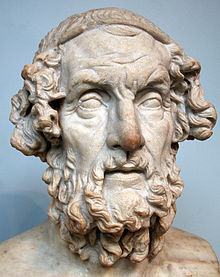
The Politics of Jesus: Behold the Man! Our Victorious Lamb. By John Howard Yoder. Grand Rapids, Mich.: W.B. Eerdmans, 1994.
Are the ethics that Jesus and the early church relevant in our crazy world today? What the heck does this Kingdom of God that Jesus speaks of mean? In Politics of Jesus John Yoder, professor of theology at the University of Notre Dame, seeks to answer these questions by creating a social ethic that relies on the “bulk of specific and concrete content in Jesus” vision of the divine order which can speak to our age as it has seldom been free to do before, if it can be unleashed from the bonds of inappropriate a prioris” (xi). To accomplish this Yoder negates the “a prioris” or previous ways of thinking that believed that Jesus could speak to modern ethics. Throughout the book Yoder directly addresses the arguments of those who think Jesus’ ethical teachings are not relevant. In this second edition, he updates original 1972 book to address the people that sought to argue against his notion that Jesus’ ethics are applicable to modern society through the use of brief epilogues after each chapter that bring modern scholarship into Yoder’s ethical arguments.
Yoder claims “that Jesus is, according to biblical witness, a model of radical political action.” (2) To prove his point he takes the reader through an interpretation of book the of Luke that says that the Kingdom of God that Jesus preached and lived out was to bring about radical social change to the world. It is through this lens that Yoder reads the synoptic Gospels, and especially Luke. One of his major arguments of chapter 2 The Kingdom Coming (the longest and most critical of the book) is that Jesus is preaching the idea of Jubilee, where debts are forgiven. For Yoder, “the place of Leviticus 25 in the Bible kept alive the vision of an age when economic life would start over from scratch” (31) is the platform of the Lucan account of Jesus. Leading a life of discipleship is the pathway to the Kingdom of God which “constitutes an avoidable challenge to the powers that be and the beginning of a new set of social alternatives” (39).
One of these social alternatives is that of choosing peace over violence. According to Yoder there were three temptations for Jesus to attain his kingship with violence. “Jesus once could have taken over the kingship by acclamation after the feeding of the multitude. His second chance for a coup d’etat had been at the entry into the temple, with a jubilant crowd at his back; both times Jesus had turned away from the challenge to take over” (47). The third and final time was in the garden of Gethsemane as Peter draws his sword. “Once more, now clearly for the last time, the option of the crusade beckons. Once more Jesus sees this option as a real temptation. Once more he rejects it.” (48) Instead, he chooses the cross. It is the ultimate act of love for his enemies. “The suffering of the Messiah is the inauguration of the kingdom” (51).
The rest of the book flows from this Lucan reading of the Kingdom of God, and Yoder goes into further depth through the rest of the book. If one wanted to they could read just the first two chapters of The Politics of Jesus and have a good summary of the entire book. However, Yoder’s ideas are provocative enough that the further detail is necessary. Yoder addresses the dramatic economic repercussions of a Jubilee ethic. He begins with an reading of the Lord’s Prayer. He interprets “remit us our debts as ourselves have also remitted them to our debtors” (62), as a jubilee prayer. The parables that Jesus told concerning money carry the Jubilee ethic within them, especially the merciless servant and the unfaithful steward. In both, “the honesty of the debtor should correspond with the lender” (66). As Jesus declares in Luke 16:9, “Practice the Jubilee which I am announcing, by liberating others from their debt to you, liberate yourself from the bonds which keep you from being ready for the kingdom of God.” Practicing Jubilee was not optional to be a disciple of Jesus; it was (and is) the path to the kingdom of God for Yoder.
The message of the Kingdom of God and Jubilee economics is challenging to the existing power structure. This is why believing that God Will Fight for Us, as one of the chapters is titled, is necessary. For Yoder this is the primary point of the Exodus story and of the Cross. “The Kingdom was unacceptable to most of Jesus’ listeners not because they thought it could not happen but because they feared it might, and that it would bring down judgment on them” (85). Obviously, the word fight has a different connotation than violence to Yoder. In fact it is a non-violence that Jesus used to being about the Kingdom through the Cross.
The second half of the book shifts from the ministry of Jesus to the apostolic ethical tradition. The Cross is central for the early Church’s ethics as well. “Only at one point, only on one subject – but then consistently, universally – is Jesus our example: in his cross” (95). The cross is the believer’s “price of his nonconformity…it is the social reality of representing in an unwilling world the Order to come” (96). By accepting the cross, the early church was accepting a new social order of “concrete jubilatory repentance – in which justice and grace are linked” (105). It is with the cross that “servanthood replaces dominion, forgiveness absorbs hostility”; this is the New Testament social ethic to be like Jesus.
Throughout the book Yoder tries to make the radical social ethic of Jesus relevant for our times. He succeeds best at this when discussing Christ and Power (the title of a chapter). Yoder sees that “we are lost in the world, in its structures, and in the current of its development” (143). We need to move to a Kingdom ethics because, “no longer can it be taken for granted that human intelligence and institutions can solve all our problems” (139). However, Yoder contends that Christians can act submissively to the powers as Jesus did. “He accepted his own status of submission. But morally he broke their rules by refusing to support them in their self-glorification” (145) The kingdom should be enacted through churches, as “they must be able to discern when and where and how God is using the Powers – we are called to contribute to the creation of structures more worthy of human society” (155). Christians and the Church should be simultaneously submissive to the Powers, while trying to transform them into the kingdom.
The last few chapters of the book are devoted to sorting out the tension between subordination and transforming the Powers of the world. Unique to Christianity, “the subordinate person in the social order is addressed as a moral agent” (171) in the apostolic church. This is a “faith that assigns personal moral responsibility to those who had no legal or moral status” (171). Yet, the Christian message is not only to the subordinate. This new social order calls “the dominant partner in the relationship to a kind of subordination” (177). This creates a reciprocal relationship that was not possible without kingdom ethics. “The work of Christ is not only that he saves the soul of individuals and henceforth they can love each other better, the work of Christ, the breaking down of the wall, itself constitutes a new community” (219).
The Politics of Jesus is a vital work in Christian social ethics in the latter half of the 20th century. As a new reader to Yoder and his radical faith it is hard to disagree with him. If taken seriously, his notion of the radical Jesus will take time to fully resonate with the reader as for most a dramatic lifestyle change would be needed. With that said, there are only a few points of contention that I have with it. First, at times Yoder reads his Kingdom ethic into the bible, instead of letting the bible tell the story of Kingdom ethics. For instance, to say that the early church only wanted to imitate Jesus in the Cross seems to be a bit off the mark. Second, in trying to bridge the gap between Jesus’ time and our own, Yoder fails to make a practical ethics in his work. Read this work with any book of David Korten such as The Great Turning: From Empire to Earth Community and you would have a more complete Kingdom ethics that matches the theories of Yoder with practical considerations. With these points of contention noted, The Politics of Jesus is must read for anyone interested in the radical social ethics of Jesus’, which should be all Christians.
Kenneth Mantler
Boston University



